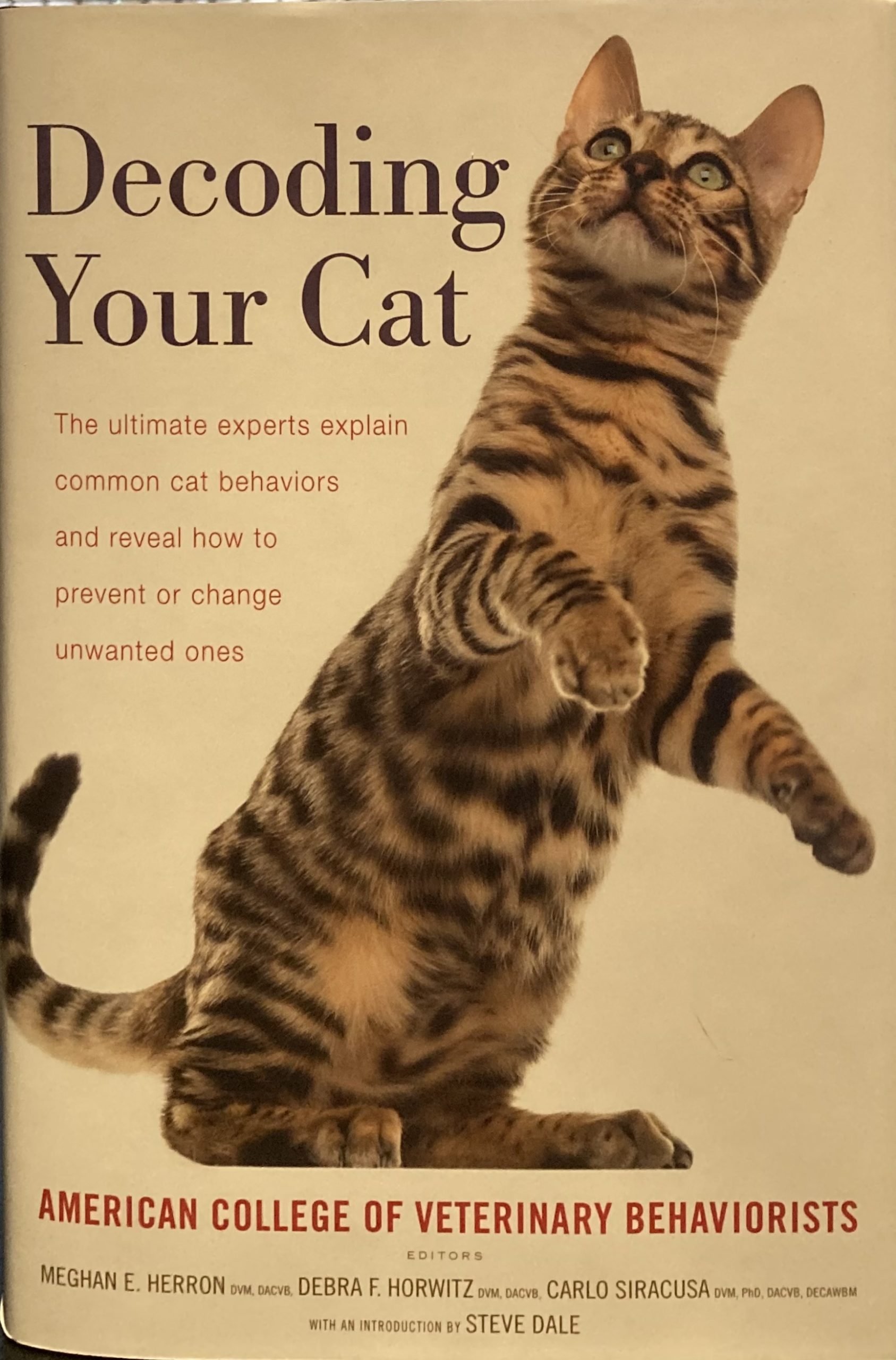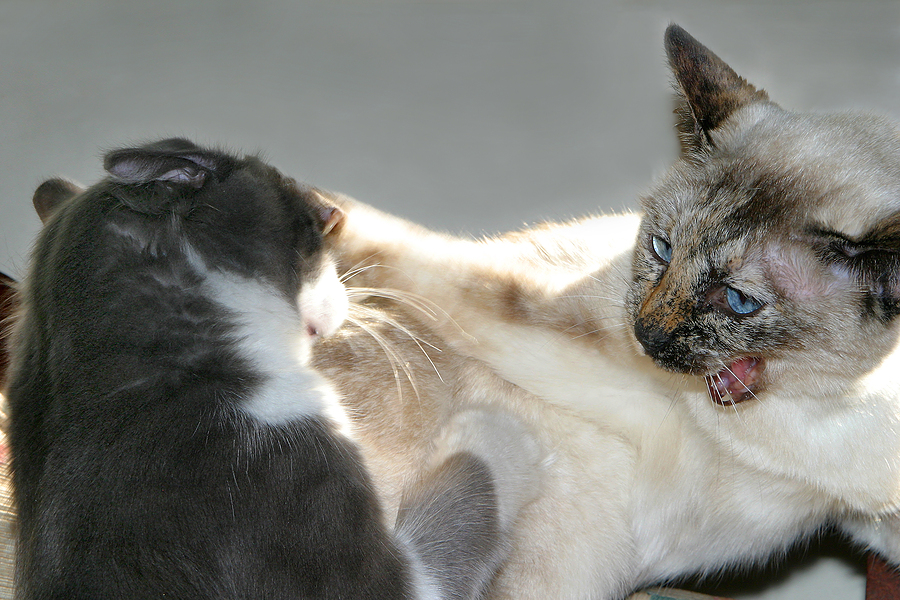Veterinary behaviorists are last responders. When no one else can assist, they swoop in and save the day, and often a pet’s life.
Boarded veterinary behaviorists are true specialists. Not only are they veterinarians who understand medical health, they are also experts at understanding emotional health. They unpack animal behavior for us–in the case of this particular book, the behavior of cats, arguably the most mysterious of our animal companions.
When it comes to relationships with cats and dogs, pet owners are often plagued by the many myths, misconceptions, and misunderstandings  surrounding animal behavior. To address some of these fallacies, members of the American College of Veterinary Behaviorists wrote Decoding Your Dog in 2014. This year they’ve released the sequel, Decoding Your Cat.
surrounding animal behavior. To address some of these fallacies, members of the American College of Veterinary Behaviorists wrote Decoding Your Dog in 2014. This year they’ve released the sequel, Decoding Your Cat.
Arguably, there are more misconceptions regarding cats compared to dogs – even from experienced cat owners. As one example, cat parents often truly believe their cat is being spiteful. “No cat has even been motivated out of spite,” says contributing editor Meghan Herron, DVM, DACVB.
Decoding Your Cat contributor Amy Pike, DVM, DACVB, says, “Cats do wave a red flag something is wrong. Many times, pet parents don’t notice the change in behavior because cats can be subtle. And that is even true for people who are really experienced cat parents.”
What’s a behavior problem for you and in your home is usually a cat just doing what’s natural and normal, at least for a cat. That may include expressing their strong hunting instinct and fulfilling a desire to scratch and climb. Dr. Herron says, “When it comes to cats, our [clients’] expectations are too often not what cats truly are.”
It’s important to find a way for cats exhibit those natural behaviors, especially if they live in indoors. Contributing author Dr. Julia Albright, DVM, DACVB, associate professor of veterinary behavior at University of Tennessee College of Veterinary Medicine in Knoxville, says, “While cats are way more self-sufficient than dogs, we’re often not fair to cats, not giving them what they need.”
Dr. Albright is referring to enrichment, the opportunity to express species-specific behavior. Fear Free advocates for the necessity of providing this enrichment, and so does the American College of Veterinary Behaviorists. There’s not only an entire chapter on enrichment, there’s mention of it in every chapter.
Another important objective consistent throughout the book is to help raise client awareness that even the most subtle change in behavior may be a result of a medical issue. “Every day when I was in general practice, people said, ‘Give me the Prozac,” Herron says. She adds that pet parents want a magic pill, which doesn’t exist. And because the Internet says the problem is behavioral, it must be. So they add litter boxes for the cat with kidney disease; that’s fine, except that the cat still has kidney disease.”
All the contributing editors, and there are 17, writing on topics ranging from feline communication and learning to litter box issues and oral obsessions–and everything in between–love cats and want them to thrive in their relationships with people.
“I’m so glad that cats are finally receiving attention they deserve – and hope Decoding Your Cat clears up the long list of misconceptions and misunderstandings people have about cats,” Albright says.
This article was reviewed/edited by board-certified veterinary behaviorist Dr. Kenneth Martin and/or veterinary technician specialist in behavior Debbie Martin, LVT.








